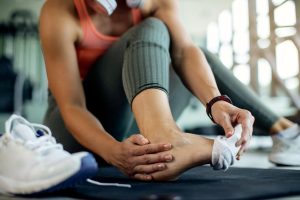Ramadan has arrived. Millions of Muslims around the corner of the world are fasting from morning twilight to evening twilight for approximately 15 hours per day for one month. We Malaysians are familiar with a variety of cultural celebrations, but did you know that Ramadan is the most sacred and awaited month for Muslims and non- Muslim.
During the holy month of Ramadan, people gather to break the fast with rich, high-calorie foods. Some people may also engage in less physical activity during Ramadan. As a result, it is critical to pay close attention to nutrition during Ramadan in order to stay healthy and avoid weight gain. So there are below several tips on how to keep your body stay fit and healthy during fasting.
- Never skip Sahur
The pre-dawn meal is the most important part of the game because you`re going to start the day without food and water until dusk. Because you intend to fast until dusk, your body will undoubtedly require additional fuel to perform various activities. Your pre-dawn meal should ideally include complex carbohydrates, high fibre, and lean proteins. And do not over-eating during Sahur. Because excessive amount of eating will lead to stomachache and this can make you lose half of the food you ate just now. And you will not have sufficient energy to go through the whole day.
- Nutritious Meal

Consuming nutritious food during the month of Ramadan is a key element that is very important for a person’s body. This is because it will supply enough substances and nutrients for the body’s organs to function properly during fasting. In addition, good nutrition also affects a person’s mental health because insufficient food portions can also cause a person’s emotions to be disturbed. This will affect the productivity of daily activities.
- Plan the best time for a workout
Although it may appear impractical, I enjoy getting up a little earlier in the morning to squeeze in a workout session before sahur. Morning workouts give me a lot more energy throughout the day. Otherwise, knowing that we’ll be breaking fast soon, we can always push ourselves a little harder in the evening (before sunset). I like to do some workouts 30 minutes before iftar and keep my workout brief (between 30 and 45 minutes) and light to moderate in intensity. Strength training with longer rest periods (1 to 2 minutes) between sets is preferred over HIIT/Tabata/intense cardio-based workouts. This will allow the body to recover between sets and keep the body from becoming dehydrated. After the therawih, I will schedule a time to finish my workout at least one hour before bedtime. Avoid strenuous exercise, such as high-intensity interval training. People who exercise at a moderate intensity fall asleep faster and spend more quality time in deep sleep. Create a regular bedtime routine and stick to it. A gentle yoga flow will keep the body active and healthy during Ramadan just as well.
- Stay hydrated all the time

Since we can’t drink water while fasting, it can lead to dehydration. Minimize this by strategically planning water intake during sahur, iftar, and two hours before sleep. Drink plenty of water to stay hydrated because the body intends to lose a lot of water through sweat and urine. So, after Iftar, the priority is for the body to rehydrate first. How much water should you take in? It all depends on your age, gender, climate, and level of activity. Water is essential for our dehydrated bodies because it flushes out toxins. It also reduces the risk of UTIs and helps relieve the pain associated with gallbladder stones if you have them. Drink at least 8-12 glasses of water between your post-dusk meal and your pre-dawn meal. Water means plain water and less sugar water.
- I Like To Move It! Move it!

During this time, I prefer to concentrate on breathing exercises, meditation, balancing, and flexibility. I just do body weight training to get a good sweat and the training routine is low to moderate in intensity. However, if your fitness level allows, feel free to push yourself a little bit more. Strength training, on the other hand, is essential for preventing muscle loss, so it must be included.



